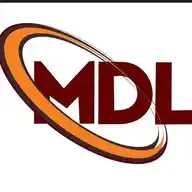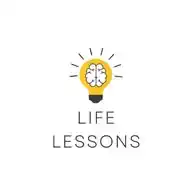
Daily Aliyah
232 subscribers
About Daily Aliyah
A (hopefully) meaningful lesson from each Aliyah, meant to inspire curiosity and more Torah learning. Help spread the word - Please consider forwarding this to others so they can join! https://chat.whatsapp.com/I7IHQNPpKLF0adHHXTUYda Thoughts written by Shlomo Ressler, audios recorded by Asi Ressler To order a hard copy: https://mosaicapress.com/product/the-daily-aliyah/ Shlomo Ressler
Similar Channels
Swipe to see more
Posts

BONUS Dvar Torah for Behaalosecha 7th Aliyah: Actual text: https://tinyurl.com/5t3ttjb4 Parashas Behaalosecha details several complaints by the Jews, and the repercussions of those complaints, including God’s will to fly in quails and introduce prophets. The Torah then records the following details: (1) Miriam speaks negatively about Moshe, (2) Moshe was exceedingly humble, more so than any person on the face of the earth (12:3), and (3) God defends Moshe to Miriam and Aharon. Is there a connection between the complaints, Moshe’s humility, and Miriam’s lashon hara (harmful words)? Rabbi David Fohrman explains that Moshe’s humility enabled him to fulfill his sole purpose to benefit God, which explains why Moshe was also able to assert himself when required and relinquish responsibility to prophets when asked. When you’re willing to be anonymous and forgo your ego, you can affect the most change. That’s what God was conveying to Miriam, to the Jews, and to us—it’s not about who gets to deliver a message, it’s about making sure the message gets to where it needs to get. Another interesting point, the name of the place where all this happened was changed from Paran (10:12) to Tab’erah (11:3) because of the fire caused by the complaints, to Kivros Ha’taavah (11:34) because of the craving for meat, and then back to Paran (12:16). It could be that once the lesson was learned, the Jews were able to regroup where it all started, with their new understanding about complaints and humility. Please consider forwarding this to others so they can join! https://chat.whatsapp.com/I7IHQNPpKLF0adHHXTUYda

Dvar Torah for Behaalosecha 6th Aliyah: Actual text: https://tinyurl.com/528byz99 As the people continue to receive the miraculous manna, they complain and, nonetheless, beg for meat, recalling “the fish that we ate in Egypt free of charge…” (11:5). The Talmud explains that “free” does not mean free of charge, rather free of mitzvos associated with it. What exactly were the people complaining about? Rabbi Mordechai Kamenetzky proposes that the manna that the people now receive includes spiritual responsibilities that the Jewish people are resisting. While there is a certain simplicity in doing what you are told and not having your own opinion matter, that is not the way to grow. The circumstances in which people find themselves and how they respond to ever changing conditions are necessary determinants in the maturation of us as people and as a nation, a process that evolves for each of us personally and collectively, and one that we should embrace and nurture. Please consider forwarding this to others so they can join! https://chat.whatsapp.com/I7IHQNPpKLF0adHHXTUYda

Dvar Torah for Shelach 4th Aliyah: Actual text: https://tinyurl.com/bdez9zuc After the spies’ negative report about Israel, a plague kills them, except for Calev and Yehoshua who “remained alive” (14:38). Why does the Torah need to specify that Calev and Yehoshua remained alive when it had already been made clear earlier in the parashah? The Gemara explains that Calev and Yehoshua received the reward initially designated for the other ten tribal leaders. Rav Aharon Kotler suggests that not doing the right thing impacts not only the offender but also those around them who must now pick up their slack. As a result of Calev and Yehoshua’s added responsibilities in leading the nation, they were rewarded with the others’ reward. Inversely, the wrongdoers could have learned from the righteous among them and avoided their misdeeds, but instead adhered stubbornly to their beliefs and persisted with their damaging message. Choosing between right and wrong is not just an individual choice. As the Torah highlights, what we choose affects everyone around us, giving us an opportunity to not only do what’s right but inspire those around us to do the same. Please consider forwarding this to others so they can join! https://chat.whatsapp.com/I7IHQNPpKLF0adHHXTUYda

Dvar Torah for Shelach 1st Aliyah: Actual text: https://tinyurl.com/ycxxkazh The story of the spies speaking negatively about the land of Israel (13:1–14:25) is relayed directly after Miriam is punished for speaking negatively about her brother Moshe (12:1–16). The Midrash tells us that the story of the spies is relayed right after Miriam’s because the spies should have learned from Miriam’s mistake. However, why did they need to learn from her mistake if lashon hara is already objectively wrong? Rav Shimon Schwab explains that due to Moshe’s humility, Miriam’s lashon hara wouldn’t affect Moshe as much as it would reflect on God because that’s who Moshe represents. The spies spoke badly about the land of Israel, which technically also has no feelings, but they should have understood that the land is a reflection of God and speaking badly about His gift to us was very wrong. The placement of the story of the spies underscores the awareness and sensitivity we need to have when making any negative statement and what we represent by association. Please consider forwarding this to others so they can join! https://chat.whatsapp.com/I7IHQNPpKLF0adHHXTUYda

Dvar Torah for Behaalosecha 4th Aliyah: Actual text: https://tinyurl.com/mrtjrdhp As the Jews wandered the desert, a cloud hovering over the Mishkan would cue when to camp, how long to stay, and when to leave (9:17). The Torah spends seven pesukim describing how they followed the cloud prompts, which begs the question of why the need to be so verbose. The Lekach Tov suggests that humans are naturally curious beings that try to understand their surroundings. The problem is that we are limited by our intellectual capacity and by the information we are given. We do not see the consequences or future of our reality. These pesukim point out a level of precise compliance that the Jewish people achieved. This acceptance enabled them and can enable us to trust in God’s guidance and live at peace with His direction. Please consider forwarding this to others so they can join! https://chat.whatsapp.com/I7IHQNPpKLF0adHHXTUYda

Dvar Torah for Shelach 3rd Aliyah: Actual text: https://tinyurl.com/3y78z4bh As Calev and Yehoshua try to convince the people to trust God that His land is perfect for them, they claim that the people of that land “are [as] our bread” (14:9). Aside from its not being accurate, How would that argument be used to reassure the people that God is on their side and that they will prevail? God’s ultimate goal for us is our acceptance of His plan and letting Him take care of our needs, especially during transitional periods such as this. Extending this logic, it would follow that even people who seem to be in opposition to us, or larger than us, or more powerful than us, are actually perfectly placed by God to prompt us to overcome our fears and settle into a plan that God has neatly laid out for us. When the threats and dangers that the people originally feared are ultimately overcome, it becomes evident that God has actually been supporting us all along. Because the people did not allow God to prove His loyalty, the result was that they perished in the desert. The story serves up “bread” for us today, as we benefit from its message to have faith in God’s guidance for our success. Please consider forwarding this to others so they can join! https://chat.whatsapp.com/I7IHQNPpKLF0adHHXTUYda

Dvar Torah for Shelach 6th Aliyah: Actual text: https://tinyurl.com/a5recf77 The Torah describes the supplements that are now to be brought with the sacrifices, including Minchah (meal The Torah describes the mitzvah of challah, the act of separating a piece of kneaded dough and donating it to the priest (15:17–21), distinct from the commandment to donate grain (Terumah). Why is this dough double-taxed (taxed first as grain and then as dough)? Rav Hirsch posits that while donating grain exhibits our appreciation for the assets we’ve attained, the mitzvah of challah represents our efforts associated with those resources. Challah is created through man-made efforts, unlike grain which grows naturally. So too, to be in a position where our efforts matter is just as much of a blessing. Challah demonstrates this recognition that not only do our resources need to be shared, but also our efforts. Please consider forwarding this to others so they can join! https://chat.whatsapp.com/I7IHQNPpKLF0adHHXTUYda

Dvar Torah for Shelach 5th Aliyah: Actual text: https://tinyurl.com/yn2ut2kt The Torah describes the supplements that are now to be brought with the sacrifices, including Minchah (meal offerings) and Nesech (wine). Commentaries explain that this is to atone for the spies’ unfavorable report. The Torah then qualifies that this rule applies to native Jews (15:13) and then contradicts that by including converts three times (15:14–16). Rav Schwab suggests that because the new accompaniments were added as a direct result of the Jews’ improper dismissal of the land and God’s gift, converts may feel like it would not apply to them. Or, conversely, Jews may feel like some rules may not apply to converts. The Torah is emphasizing that although rules have specific origins, their observance applies to everyone. This focus on equality helps people view each other as equals and encourages the sharing of burdens. We are stronger together and finding ways to work as a team will only improve our collective future. Please consider forwarding this to others so they can join! https://chat.whatsapp.com/I7IHQNPpKLF0adHHXTUYda

Dvar Torah for Behaalosecha 5th Aliyah: Actual text: https://tinyurl.com/42hatumv After nearly a full year from when the Jews arrived at Mount Sinai, the cloud rises from the Mishkan, signaling their impending departure, and travels three days ahead of them to find their next resting place (10:33). The Jews immediately start complaining about the journey and all else not going their way. What happened that suddenly made them seem like malcontents? The Maharsha explains that the Jews’ three days without Torah caused them to lose their perspective. This concept is the source for reading the Torah every Monday and Thursday to avoid accruing three days without exposure to Torah. This idea also highlights the importance of consistency, such that when we develop good habits, we would be better served if we reinforced them consistently and not allow ourselves to lose the momentum we’ve built. Please consider forwarding this to others so they can join! https://chat.whatsapp.com/I7IHQNPpKLF0adHHXTUYda

Dvar Torah for Behaalosecha 3rd Aliyah: Actual text: https://tinyurl.com/5f5w2jsj On the first anniversary of the Exodus, the children of Israel are instructed to bring the Pesach offering in its appointed time (9:2). In the next pasuk, the Torah instructs, “You [Moshe] shall make it [the Pesach offering] in its appointed time” (9:3). It seems reasonable that stating this law once would be sufficient. Why then would the Torah repeat itself in the very next sentence? And why mention Moshe, a human who does not live forever, in a lasting law? Rav Hirsch suggests that the first instruction is for future generations, while the second is meant to address Moshe directly as a means to acknowledge the immortality of the community he created. This honorable mention highlights the critical concept of community that Moshe initiated. Just as Moshe created a lasting community that will honor him eternally, we too have the opportunity to leave a lasting legacy in our respective communities that will forever endure. Please consider forwarding this to others so they can join! https://chat.whatsapp.com/I7IHQNPpKLF0adHHXTUYda













